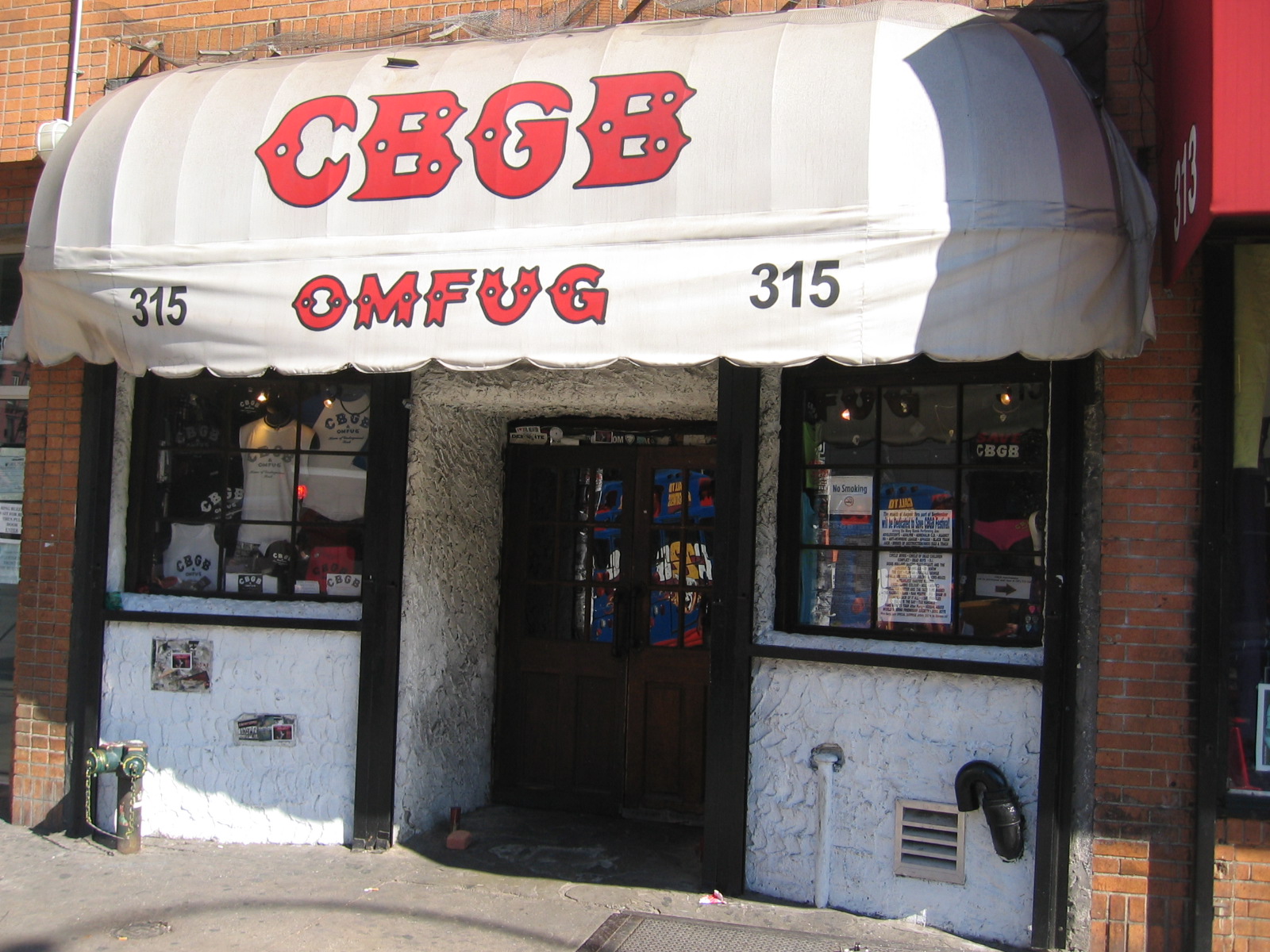
CBGB
CBGB was a New York City music club opened in 1973 by Hilly Kristal in the East Village in Manhattan, New York City. The club was previously a biker bar and before that was a dive bar.[2] The letters CBGB were for Country, Bluegrass, Blues, Kristal's original vision for the club. But CBGB soon emerged as a famed and iconic venue for punk rock and new wave bands, including the Ramones, Dead Boys, Television, Patti Smith Group, Blondie, Madonna and Talking Heads.
For the 2013 drama film, see CBGB (film).Location
Other bands affiliated with CBGB included Agnostic Front, Murphy's Law, U.S. Chaos, Cro-Mags, Warzone, Gorilla Biscuits, Sick of It All, and Youth of Today.
One storefront beside CBGB became the "CBGB Record Canteen", a record shop and café. In the late 1980s, "CBGB Record Canteen" was converted into an art gallery and second performance space, "CB's 313 Gallery". CB's Gallery was played by music artists of milder sounds, such as acoustic rock, folk, jazz, or experimental music, such as Dadadah, Kristeen Young and Toshi Reagon, while CBGB continued to showcase mainly hardcore punk, post punk, metal, and alternative rock.
313 Gallery was also the host location for Alchemy, a weekly Goth night showcasing goth, industrial, dark rock, and darkwave bands.[3][4] On the other side, CBGB was operating a small cafe and bar in the mid-1990s, which served classic New York pizza, among other items.[5][6]
Around 2000, CBGB entered a protracted dispute over allegedly unpaid rent amounts until the landlord, Bowery Residents' Committee, sued in 2005 and lost the case. A deal to renew CBGB's lease, which was set to expire in 2006.
On October 15, 2006, the club closed with a performance by Patti Smith, who took the stage at 9:30 p.m. and played for 3 1/2 hours until slightly after 1 a.m. on October 16, 2006, closing with her song "Elegie" followed by reading a list of punk rock musicians and advocates who had died in recent years.[7]
CBGB Radio launched on the iHeartRadio platform in 2010, and CBGB music festivals began in 2012.[8] In 2013, CBGB's onetime building, 315 Bowery, was added to the National Register of Historic Places as part of The Bowery Historic District (not a New York City Historic District).[9]
CBGB's second awning, the one in place when the club closed in 2006, was moved into the lobby of the Rock and Roll Hall of Fame in Cleveland.[36]
The CBGB Festival produced large free concerts in Times Square and Central Park on July 7, 2012. They also showcased hundreds of bands in venues across the city.[37][38] The festival premiered dozens of rock-n-roll movies in theaters around Manhattan.[39]
Directed by Randall Miller and starring Alan Rickman as Hilly Kristal, the film CBGB, about Kristal and the origins of the club, was released in October 2013[40][41] to harsh reviews.[42][43] Iconic in American popular culture, CBGB's image remained storied: